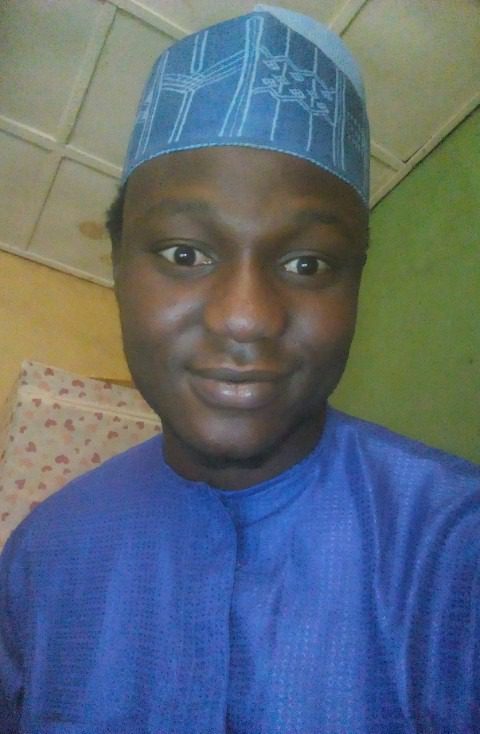National Issues
Dirt After Death: Nigeria Lost Her Messiah Forty-five Years Ago -By Tunmise Ajeigbe

HOW?
How lovely was your existence to the old generation of Nigerians?
How pleasurable your living being was to our forefathers?
How we can qualifier your unforgettable everlasting legacy?
Ever since they took you off from us,
Spirit of patriotism suddenly got lost from the mindset out rulers.
Many of them claimed they loved us,
But, timeliness showed us they love money, jeopardizing our likeness.
We feel your smile all the time whenever our eyes visit twenty naira note.
Today, our path is not cleared,
Our sailing is very harmful,
How can we bring back that unending promised joy?
How can we erase memories of war from our history books?
Nigeria of now; a sanctuary for tormentors.
Wisdom! Goodness! Grace! And blessing! Kindly locate Nigerians,
For tribulation is all we know in this generation.
Forty-five years ago, disunity shed the blood of one of our prominent messiahs.
How can we put an absolute end to corruption; honoring our lost terrors.
WHO’S MURTALA MOHAMMED?
Many Nigerian youths of today find it uneasy to look back into the past histories of their nation. Robert Heinlein once said, “A generation which ignores history has no past and no future”. Similarly, Marshall MC Luhan says, “Only the vanquished remember their history”. Today 13th of February, 2021, forty-five years ago spirit of evilness and disunity came over some co-administrator, instead of putting their names in the book of good memory, they went on given themselves and their generations such an odd name with ill reputation.
Although, Nigeria as a nation, no head of state come into power with a legal means apart from some little exceptions. Autocratic reign is never the right way to secure the happiness of the men.
However, some coup d’états were like a blessing in disguise for the past generations of Nigerians. Many of our forefather believe that some of the head of state came to to ruin us with the motive to jeopardize the goodness that supposed to be more useful to the upcoming generation, in the other hand, some came to rule like a king that will never love his name to be cleared off in the memory of impact, their mindset is to make Nigeria one of the vast developing nations in the entire globe.
Every previous coup d’état in Nigeria is known for its usual deadly excuses of imperfection of the previous government but, coup d’état that favored General Murtala Mohammed appeared to be a blessing in disguise for Nigerians. According to him, a bloodless power overthrown after nine years of no progression, in which Nigerians suffer, experienced first-ever civil war. History cannot forget General Murtala Mohammed because he led the counter-coup that brought his predecessor into power in the year 1966. He stands as a symbol of glory to northerners, his effort to restrain the power back to northerners after the first-ever coup d’état that came up on January 15th, 1966, favoring the Igbo.
General Murtala Mohammed coming into the office on 30th of July, 1975 until his assassination on the 13th of February 1976. This period in Nigeria history, from the northern counter-coup victory to General Murtala Mohammed’s death is commonly associated with the institutionalization of the military in politics.
GENERAL MURTALA MOHAMMED’S LEGACY
General Murtala Mohammed introduced the phrase “fellow Nigerians” and “with immediate effect” to national lexicon. In his legacy won him broad popular support, and his decisiveness elevated him to the folk hero, not only that his reign is also counted among the military reign that was so felt with citizens. As head of state, he put in place plans to build a new federal capital territory due to Lagos being overcrowded. He set up a panel headed by Justice Akinola Aguda, which chose the Abuja area as the new capital ahead of other proposed locations. On 3 February 1976, General Murtala Mohammed announced that the Federal Capital would in the future move to a federal territory location of about 8,000 square kilometers in the central part of the country.
Towards the end of 1975, the administration implemented a mass purge in the Nigerian civil service. The civil service was viewed as undisciplined and lacking a sense of purpose. A retrenchment exercise was implemented as part of a strategy to refocus the service. However, because of the drastic nature of the purge, allegations that malice and revenge were used by heads of department in recommending people for retrenchment, and little was done to scrutinize the details and reasons staff were disengaged.
As head of state, General Murtala Mohammed inherited an immense amount of oil and petroleum resources and enormous but untapped natural gas reserves. But in 1975, General Murtala Mohammed saw reduced revenue due to low levels of petroleum production; this meant that the military government lacked the projected funds to meet Nigeria’s development plan for 1975. The decline in petroleum production in 1975 was due to a global fall in demand, high costs of spare parts, and high labour costs. General Murtala Mohammed initiated a comprehensive review of the Third National Development Plan. Singling out inflation as the greatest danger to the economy, he was determined to reduce government spending on public sector development projects. General Murtala Mohammed also announced that his government would encourage the rapid expansion of the private sector into areas dominated by public sector corporations.
Murtala Mohammed reappraised Nigeria’s foreign policy, stressing a “Nigeria first” orientation in line with OPEC price guidelines that was to the disadvantage of other African countries. Nigeria became “neutral” rather than “nonaligned” in international affairs. The shift in orientation became apparent with respect to Angola. Nigeria had worked with the OAU to bring about a negotiated reconciliation of the warring factions in the former Portuguese colony, but late in 1975 Murtala Mohammed announced Nigeria’s support for the Soviet-backed Popular Movement for the liberation of Angola, citing South Africa’s armed intervention on the side of the rival National Union for the Total Independence of Angola (UNITA). The realignment strained relations with the United States, which argued for the withdrawal of Cuban troops and Soviet advisers from Angola.
On February 3, 1976, the Military Government of Murtala Mohammed created new states and renamed others, the states he created include Bauchi, Benue, Bornu, Imo, Niger, Ogun, and Ondo. This brought the total number of states in Nigeria to nineteen in 1976.
13TH FEBRUARY, 1976
(THE ASSASSINATION)
On Friday 13 February 1976, General Mohammed set off for work along his usual route on George Street. Shortly after 8 a.m., his Mercedes Benz car traveled slowly in the infamous Lagos traffic near the Federal Secretariat at Ikoyi in Lagos and a group of soldiers (members of an abortive coup led by Dimka) emerged from an adjacent petrol station, ambushed the vehicle and assassinated him.
General Murtala Mohammed was killed, aged 37, along with his aide-de-camp, Lieutenant Akintunde Akinsehinwa, in his black Mercedes Benz saloon car on 13 February 1976. The car was ambushed en route to his office at Dodan Barracks, Lagos. The only visible sign of protection was a pistol carried by his orderly, making his assassination an easy task. The assassination was part of an attempted coup led by Lieutenant Colonel Buka Suka Dimka.
He was succeeded by the Chief of Staff, Supreme HQ Olusegun Obasanjo, who completed his plan of an orderly transfer to civilian rule by handing power to Shehu Shagari on 1st of October 1979. Today, General Murtala Mohammed’s portrait adorns the 20 Naira note and General Murtala Mohammed International Airport in Lagos is named in his honour.
Source: Wikipedia
















